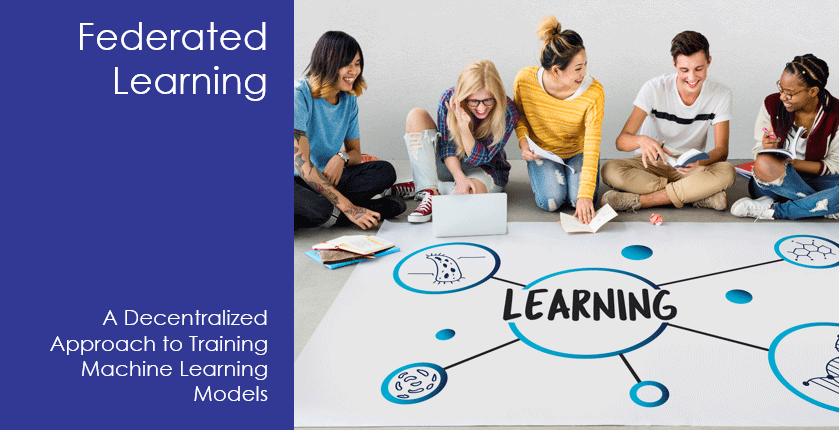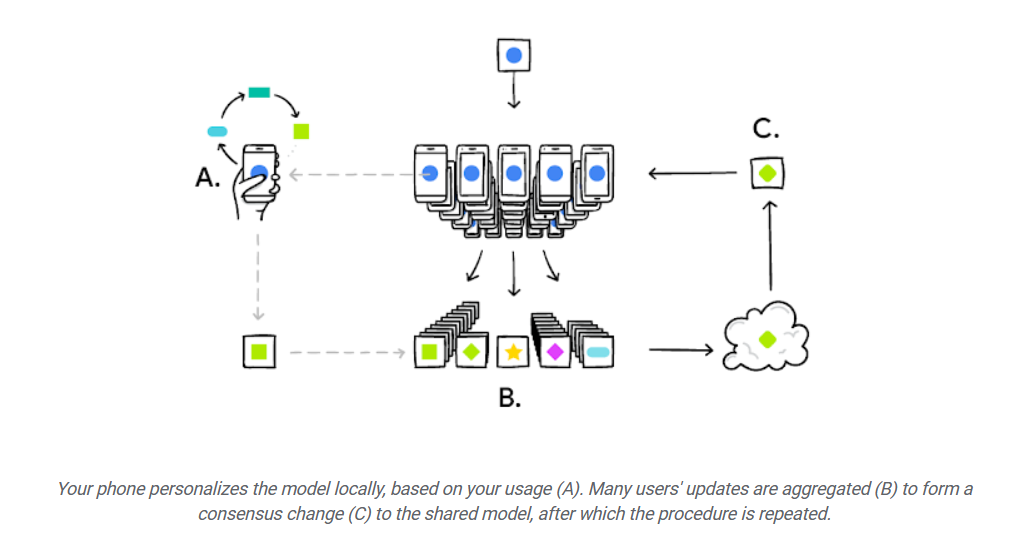- April 25, 2023
- Posted by: sadmin
- Categories: Customers

What is Federated Learning?
Federated Learning is a decentralized machine learning technique that follows a collaborative approach to train models. In this method, the processing is broken down across various devices where they are trained on specific data. This modelling happens on a local device level, distributed across multiple devices. Upon training completion, the updated parameters are then sent to the main central server, which aggregates the results across devices to generate the final, improved model.

Image Source: Google AI
Why Federated Learning?
Sensitive business data are often compromised during training and deployment in cloud platforms. Federated Learning can help in overcoming this data security issue by deploying models locally. This can ensure that privacy is maintained on a device level and only technical information such as model parameters are communicated to the central server. This approach can especially be useful for organizations with increased risk and concern of data breaches.
Federated Learning also can reduce computational burden for its decentralized architecture. The time and costs associated in deploying traditional machine learning models in central cloud infrastructures can be decreased in the process of load distribution across devices. It can also greatly reduce communication overhead with the central server which only aggregates model parameters instead of training them.
Potential increase in overall accuracy by using Federated Learning can be achieved as opposed to traditional methods. This is because the model can learn from larger and more diverse datasets, which can result in better predictions and insights.
Federated Learning Use Cases
Some prospective scenarios to use Federated Learning:
- Transportation: Federated Learning can be used in complex transportation systems where individual models can be trained to optimize routes and traffic, without endangering user data.
- Financial Services: Using local systems to develop solutions like fraud detection or personalized investment portfolio creation can benefit both businesses and users alike by generating more accurate predictions/recommendations safely.
- Healthcare Industry: Federated Learning can be advantageous in generating hyper personalized solutions. This can prove to be extremely effective in cases where patient information is used to train systems that can help diagnose diseases or recommend a treatment plan.
Federated Learning is still in its early stages of development, and its full potential across industries and use cases are constantly evolving. Even though it is not a universal solution for all machine learning related problems, it has tremendous potential to impact positively many unique business problems.
